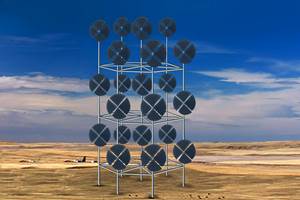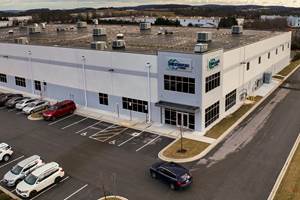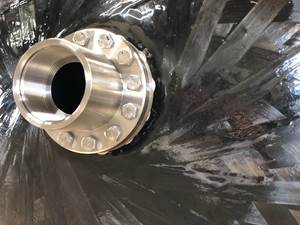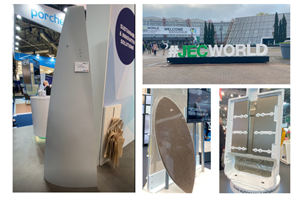Toray + Zoltek = potential game changer?
Consultant Dale Brosius, also president of Dayton, Ohio-based Quickstep Composites LLC, the U.S. subsidiary of Australia-based Quickstep Technologies (Bankstown Airport, New South Wales), sees the Toray buyout of Zoltek as a potential auto-industry game changer.
Share
On Sept. 27, Toray Industries Inc. (Tokyo, Japan) announced the company had agreed to acquire all the outstanding shares of Zoltek Corporation (St. Louis, Mo.) for approximately $584 million (USD), subject to shareholder and regulatory approval. At first glance, the transaction is a merger of opposites, considering the differences in company culture, language, management style and product lines. Although it is easy to find reasons why such a marriage is destined to fail, there also are good reasons to think the move could truly transform the carbon fiber industry.
Toray’s reputation in the carbon fiber market is unparalleled. Financially strong and fundamentally conservative, this Japanese chemicals and fibers company has been considered the market and technical leader in carbon fibers for at least the past two decades. Toray is the product-quality benchmark against which all other suppliers are measured, and often commands a premium price as a result. Toray’s product line in high-performance PAN-based fibers is exceptionally broad, ranging from standard-modulus materials used in sporting goods, to ultrahigh-modulus fibers prevalent in satellite structures. Toray is the principal supplier of fibers and prepregs for the primary structures of the Boeing 787 Dreamliner and other Boeing aircraft. As the world’s largest supplier of small-tow fiber, the company has carefully planned capacity expansions to maintain its market position.
By contrast, Zoltek established a reputation over the same two decades as the company intent on upsetting the status quo, creating a market position perhaps best described as “everything but aerospace” and, in many ways, the antithesis of Toray. In the mid-1990s, Zoltek’s stock was a high flyer, predicated on the promise of large volumes of low cost fiber ($5/lb, or $11/kg) for mass-production applications in the automotive, oil and gas and, later, wind energy markets. Rapid capacity expansions in Europe and North America stressed the company financially, given the recurrent volatility in global carbon fiber demand and pricing. Zoltek’s 50K large tow provided a challenge to many processors who were used to handling typical 12K or 24K fibers. And achieving a sustainable economic advantage proved elusive, as did $5/lb fiber. Although the wind energy market finally provided a stable base of demand, the hoped-for uptake in the automotive and oil and gas arenas did not materialize.
Pressed by key shareholders early in 2013, Zoltek began exploring strategic alternatives, including a sale of the company. It’s easy to envision any number of reasonable acquirers, given various announcements by large chemical and fiber companies during the past several years. So it came as a bit of a surprise to see Toray play the aggressor, because the two companies, on the surface, seem like polar opposites in the carbon fiber marketplace. But, looking a little deeper, an intriguing synergy emerges.
Like numerous others, I have noted a long trend toward confluence in the industrial and aerospace markets as it pertains to carbon fiber and the conversion of this versatile material into strong, lightweight parts. This has led to a lot of cross-fertilization of manufacturing methods and material forms across many industries.
Looking back, Toray has steadily increased its presence in the automotive arena for more than a decade. It has supplied prepregs for GM’s Corvette platform since 2001, as well as filament-wound driveshafts to Mazda, Nissan and Mitsubishi. In the past five years, Toray has established an automotive development center in Japan, taken a 20 percent stake in parts maker ACE Advanced Composite Engineering GmbH (Immenstaad, Germany), established Euro Advanced Carbon Fiber Composites GmbH (Esslingen, Germany) in a joint venture with automaker Daimler AG (Stuttgart, Germany), purchased a niche producer of carbon fiber automotive parts in Japan and, in July 2013, purchased a 20 percent stake in Plasan Carbon Composites (Wixom, Mich.), the supplier of finished carbon fiber parts for the Corvette.
The missing piece for Toray was low-cost carbon fiber that would make the economics work in the quest to replace steel and aluminum in cars. Zoltek provides that missing ingredient and has significant capacity in low-cost precursor and carbonization lines. Just as significant, the Toray name legitimizes large tow as the future of the carbon fiber industry.
Although the stated objective is that Zoltek will operate as a standalone subsidiary, it stands to reason that Toray will invest plentiful resources from its core fibers business to upgrade Zoltek’s facilities and product quality, drive cost down, and accelerate market acceptance of Zoltek products, not only in the automotive arena, but in other markets — including aerospace.
If Toray’s strategy is successful, two decades from now, we’ll point back to this as the watershed event for the industry. It will be exciting to watch.
Related Content
Drag-based wind turbine design for higher energy capture
Claiming significantly higher power generation capacity than traditional blades, Xenecore aims to scale up its current monocoque, fan-shaped wind blades, made via compression molded carbon fiber/epoxy with I-beam ribs and microsphere structural foam.
Read MoreHexagon Purus opens new U.S. facility to manufacture composite hydrogen tanks
CW attends the opening of Westminster, Maryland, site and shares the company’s history, vision and leading role in H2 storage systems.
Read MoreInfinite Composites: Type V tanks for space, hydrogen, automotive and more
After a decade of proving its linerless, weight-saving composite tanks with NASA and more than 30 aerospace companies, this CryoSphere pioneer is scaling for growth in commercial space and sustainable transportation on Earth.
Read MoreJEC World 2023 highlights: Recyclable resins, renewable energy solutions, award-winning automotive
CW technical editor Hannah Mason recaps some of the technology on display at JEC World, including natural, bio-based or recyclable materials solutions, innovative automotive and renewable energy components and more.
Read MoreRead Next
Plant tour: Daher Shap’in TechCenter and composites production plant, Saint-Aignan-de-Grandlieu, France
Co-located R&D and production advance OOA thermosets, thermoplastics, welding, recycling and digital technologies for faster processing and certification of lighter, more sustainable composites.
Read MoreVIDEO: High-volume processing for fiberglass components
Cannon Ergos, a company specializing in high-ton presses and equipment for composites fabrication and plastics processing, displayed automotive and industrial components at CAMX 2024.
Read MoreAll-recycled, needle-punched nonwoven CFRP slashes carbon footprint of Formula 2 seat
Dallara and Tenowo collaborate to produce a race-ready Formula 2 seat using recycled carbon fiber, reducing CO2 emissions by 97.5% compared to virgin materials.
Read More





















